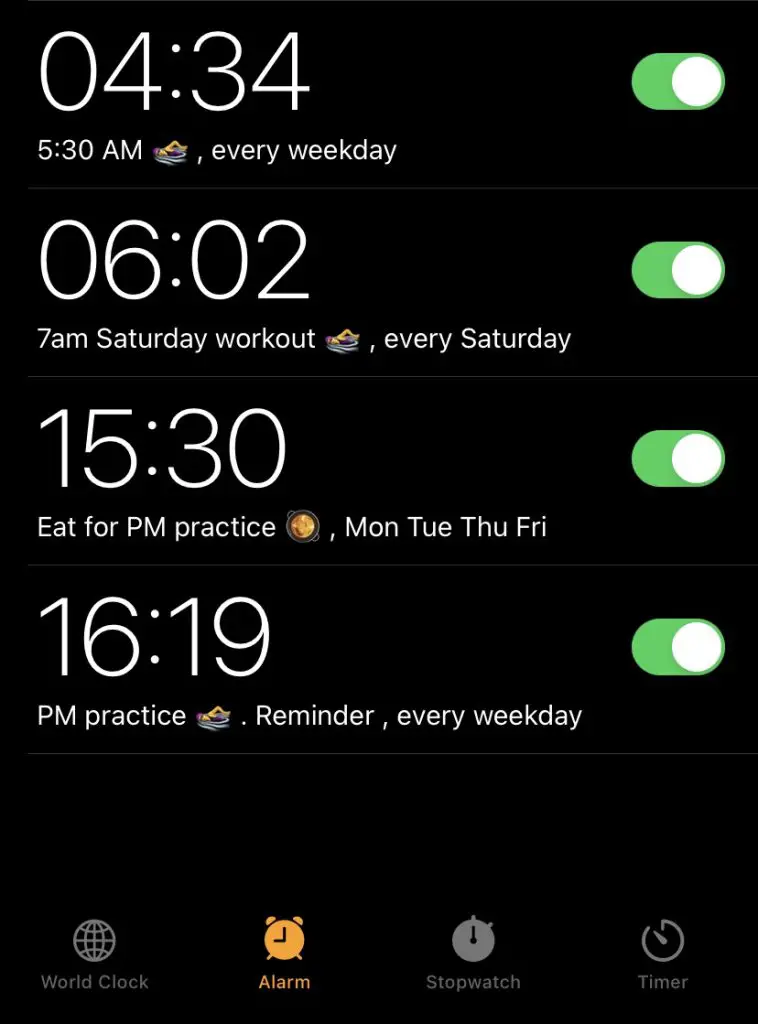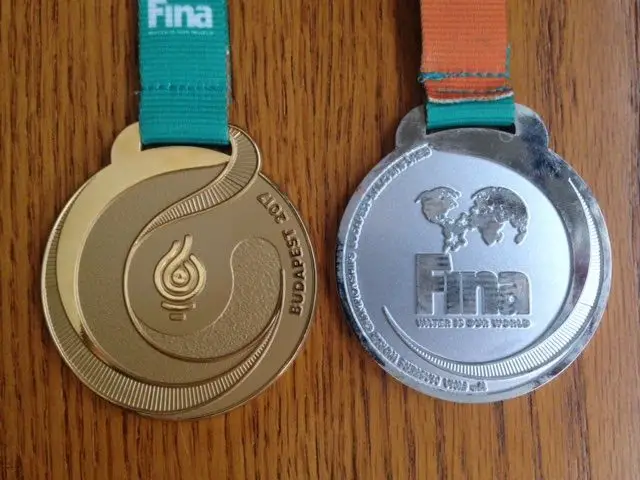Written By: Chevron
Joining a swim team offers so many benefits and rewards to those who seek them. However, you should consider the following considerations. Doing so saves you from surprises that you might face after you join or might even prepare you for tryouts in general.
These are the things that I wish I had known before joining my swim team all those years ago.
Related article: How to Prepare for Your High School Swim Team
Disclosure: This post may contain affiliate links, meaning we earn a small commission at no cost to you if you purchase something through one of our links. As an Amazon Associate, we earn from qualifying purchases. Please check out our disclosure page for more information.

1. Time Commitment

Joining a swim team takes, first and foremost, a solid time commitment. Between one to two practices a day (Monday through Saturday) and sometimes weekend long swim meets, you’ll find that swim teams can take up to 20+ hours of your week.
Even with my high school team, I was up at 5 and in the water by 5:30 almost every morning. And then I was back in the afternoon for more practice in the water or in the weight room. The demand is that much more with club swimming and of course, in college swimming.
This also doesn’t take into consideration the time you spend going to and from the pool, along with getting ready for practice or planning out meals. I found I have to keep alerts on my phone or computer to ensure I’m eating at the right time so I’m not eating too late or too early that my practices suffer.
Related article: 10 Reasons to Start Competitive Swimming
I’ve given up time with friends and family for my swim team. I’ve been late to birthday parties or had to leave an event early so I could make it to practice. And I put of trips and experiences in my life for my swim team/my swimming.
It’s not to say that I wouldn’t do it all again. I would (and I still do!). But I wish I knew prior to joining a swim team that I would end up scheduling my life around practices and swim meets.
2. Swim Team Costs
Joining a swim team cost money and while this does vary by team/location, you can expect to pay anywhere from $1000-8000+ a year. Typical costs are:
- Monthly and annuals dues/fees
- Cost of gear/equipment
- Swim meet entries
- Travel for swim meets
- Racing gear/equipment
- Travel expenses to and from various pools
- Increased food/drink expenses
These costs start small but over the course of a year, they do add up and the sticker shock may not be a pleasant one for you. This, in addition to the time commitment, I believe, are two of the biggest things I wish swim teams were more transparent about to aspiring swimmers and their families.
I’m fortunate that my swim team has relatively inexpensive monthly dues and most of our equipment is available and free to use. But I know that’s not the case for some swim teams. And truthfully, if my team wasn’t so ‘cheap’ I probably wouldn’t have come back to swim after college due to the cost.
Related article: The True Cost of Competitive Swimming
3. A Swim Team Does Not Equal Swim Lessons
Perhaps a bit harsh but a swim team is not the same as swim lessons. In fact, most swim teams require that you know how to swim to a certain degree before you can join. And while I’m a big advocate of everyone learning how to swim, I also believe you should know how to swim before joining a swim team.
Swim lessons focus on smaller groups or individuals. Whereas a swim team has more swimmers in a group and the coach can’t watch one person all the time.
I say this not to discourage you, but for your safety. Most teams have to make it across the pool without stopping or at least have the ability to do so. Trying to join a team without having this skill could result in serious results for you, including drowning.
If you’re not sure about your skill level or whether you should take lessons first, please consult the coach before you join a team. They’re best suited to assess your skills and determine what will work best for you.
Related articles:
4. Swimming Can Be Frustrating
I have 20 years of swimming experience (and growing!), and I know firsthand just how frustrating and disappointing swimming can be. I’ve missed setting records by half a second and I’ve came in second place by a hundredth of a second.
Swimming is brutal. Swim You work hard for months at a time, only to drop a tenth of a second in your race throughout the whole season. Or worse, you don’t drop at all.
Related article: Overcoming Failure in Swimming
This lack of progress can make you lose confidence and maybe wonder if they picked the wrong sport. It may even make you think about quitting. It’s a huge mental game that you have to overcome and is just as important as the physical aspect of sport.
5. Swimming can be incredibly rewarding
At the same time, swimming can also be incredibly rewarding and the rewards that come with swimming keep us going. It’s why we keep swimming despite all the setbacks and challenges.
It’s pushing yourself as far as you think you can go and then going one step more. The thrill of good practices or accomplishing a new milestone. It’s enough to gut through the bad times. Even more so when you have good teammates surrounding you.
Joining a swim team has been the most rewarding and satisfying decision I made for myself all those years ago. One secret of swimming I’ve learned is to swim for yourself first. Do what makes you happy. If you take away anything from this post, take away that 🙂

Bonus Content:
10 Tips to Prepare for Swim Team Tryouts: Tryouts for the swim team can be nerve-wracking and stressful. Reduce your anxiety with these tips to help prepare you for your swim team tryouts.
10 Myths About Swim Teams: Some swim team myths can mislead people in various ways and might keep them from joining a team. Let’s debunk these 10 common swim team myths.

Want to Improve at the Pool?
Join swimmers and swim parents to receive my free newsletter and receive a free Swimming Glossary e-book as a thanks!
Every month you’ll receive tips and coaching to help you find success at the pool.
About

Chevron is a current competitive swimmer with almost 20 years of experience at the local, national and international level. A current USA Swimming and US Masters Swimming athlete, she’s committed to providing guidance to all levels of swimmers and believes that everyone should know how to swim.